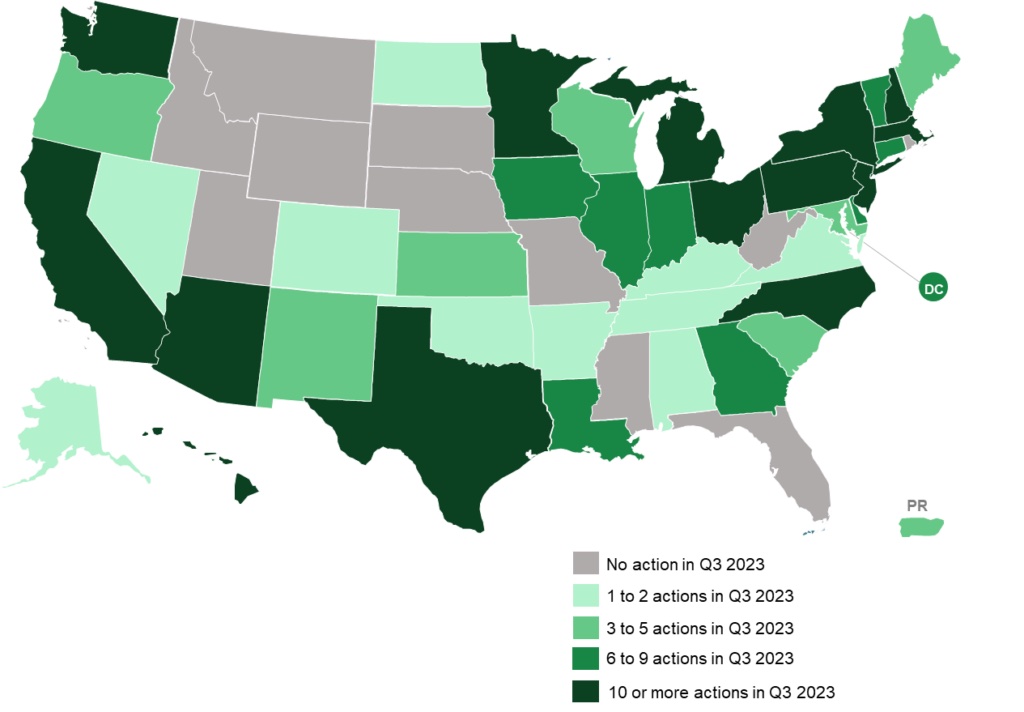The 50 States of Electric Vehicles: States Promote Transportation Electrification Through Targets and Incentives in 2023
The N.C. Clean Energy Technology Center (NCCETC) released its 2023 annual review and Q4 2023 update edition of The 50 States of Electric Vehicles. The quarterly series provides insights on state regulatory and legislative discussions and actions on electric vehicles and charging infrastructure.
The report finds that a total of 49 states, plus DC and Puerto Rico, took actions related to electric vehicles and charging infrastructure during 2023 (see figure below). The greatest number of actions related to rebate and grant programs, fees for electric vehicle owners, rate design, infrastructure planning, and targets for state procurement of electric or zero-emission vehicles.

The report highlights ten of the top electric vehicle trends of 2023:
- Considering utility ownership of charging infrastructure;
- Establishing electric vehicle-capable parking requirements;
- Implementing mileage-based or per-kWh charging fees;
- Incorporating managed charging into demand-side management plans;
- Adopting Advanced Clean Cars II and Advanced Clean Trucks rules;
- Offering enhanced incentives for low- and moderate-income households;
- Taking steps to improve charging station reliability;
- Using telematics to collect vehicle charging data;
- Pursuing vehicle-to-grid opportunities with electric buses; and
- Focusing on incentives to support deployment of charging infrastructure.
“In 2023, we observed a number of states look into, or enact fees relating to electric vehicles,” noted Emily Apadula, Policy Analyst at NCCETC. “As more people transition to electric vehicles, lawmakers are searching for an equitable way for EV owners to contribute to funds for transportation systems, which are usually funded through gasoline taxes. Among other methods, several newly implemented or raised registration fees ranged from $75 to $380.”
A total of 804 electric vehicle actions were taken during 2023. The report notes the top ten states taking the greatest number or most impactful actions in 2023 were Colorado, California, Maryland, Minnesota, Michigan, Illinois, North Carolina, New Mexico, Hawaii, and Rhode Island.
"Policymakers and utilities continued displaying creativity in seeking ways to advance EV charging and integrate this growing source of new load," observed Brian Lips, Senior Policy Project Manager at NCCETC. “Utilities experimented with charging as a service, vehicle-to-grid, and managed charging programs, while policymakers studied distribution grid impacts and effective rate design.”
In Q4 2023, 41 states plus DC and Puerto Rico took some type of action on electric vehicles and charging infrastructure. A total of 411 actions were tracked in Q4.
NCCETC | http://www.nccleantech.ncsu.edu









